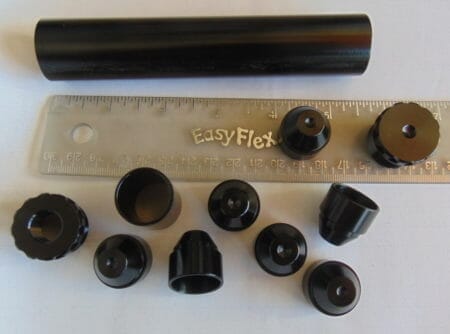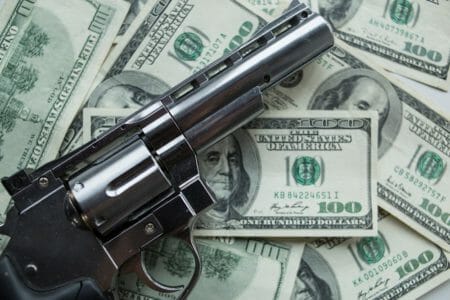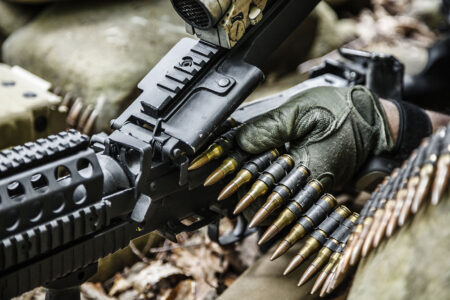
On Tuesday, November 11, 2025, a strongly worded letter from U.S. Representative Andrew S. Clyde to Attorney General Pamela Bondi marks a pivotal moment over Second Amendment rights and federal firearms regulation. This correspondence outlines Congress’s intent following the enactment of the One Big Beautiful Bill Act (OBBBA), signed into law by President Donald Trump on July 4, 2025.
The OBBBA, hailed as a landmark victory for gun owners, eliminates the excise tax on the transfer and manufacture of certain firearms regulated under the National Firearms Act (NFA) of 1934, including short-barreled rifles, short-barreled shotguns, “Any Other Weapon” (AOW) category firearms, and silencers. This legislative move has sparked a reevaluation of the NFA’s registration and transfer requirements, with profound implications for gun ownership and legal challenges ahead.
Thanks to the OBBB, the $200 NFA tax is now $0.
But registration requirements remain.
Yet it was Congress’s clear intent to repeal NFA registration by eliminating NFA taxes.
That’s why I’m urging the DOJ to adopt our position in all litigation concerning this critical matter. pic.twitter.com/Qw1nPtzvEB
— Rep. Andrew Clyde (@Rep_Clyde) November 11, 2025
The NFA, enacted nearly a century ago, imposed a $200 excise tax on the manufacture and transfer of specific firearms. Alongside this tax, the law established stringent registration requirements, mandating that gun owners submit detailed personal information to the Bureau of Alcohol, Tobacco, Firearms, and Explosives (ATF). This information includes names, dates of birth, demographic details, fingerprints, home addresses, and the physical locations of the firearms. The Supreme Court, in Sonzinsky v. United States, upheld these provisions as a constitutional exercise of Congress’s taxing power under Article I, Section 8, deeming them a legitimate mechanism to support tax collection.
The OBBBA’s elimination of the excise tax for the aforementioned firearm categories fundamentally alters this framework. Section 70436 of the act sets the tax at $0 for these items, effectively removing the financial barrier that once accompanied their transfer and registration.
The letter from Representative Clyde asserts that the registration and transfer requirements are inseparably linked to the NFA’s taxation provisions. Historically, registration served as the mechanism by which the ATF tracked tax payments, with each tax stamp reflecting the firearm’s serial number and the amount paid. Moreover, the NFA’s criminal penalties apply solely to the failure to pay or register the tax, underscoring the symbiotic relationship between the two.
With the tax now eliminated for these firearms, Congress argues that the constitutional basis for the registration and transfer requirements has been rendered obsolete. The Supreme Court’s earlier ruling hinged on the provisions being an “aid” to Congress’s taxing authority. Without a corresponding tax, these requirements are seen as lacking legal grounding.
Representative Clyde, a key supporter of the OBBBA, emphasizes that the intent behind Section 70436 was to repeal these burdensome regulations by removing their financial underpinning. This position is presented as a clear directive to the Department of Justice (DOJ), urging it to adopt and defend this interpretation in all ongoing litigation challenging the NFA’s provisions.
“We are incredibly thankful for Representative Clyde and the dozens of fellow GOP Congressmen who signed his letter to the Department of Justice in support of GOA and GOF’s lawsuit to gut the National Firearms Act,” said Aidan Johnston, Director of Federal Affairs for Gun Owners of America (GOA).
“Congress and President Trump made a generational leap forward against the NFA by eliminating the unconstitutional tax on these suppressors and short-barreled firearms, but were stopped short by the Senate Parliamentarian’s inane ruling that the NFA was not a tax.”
“With just days until their response to our lawsuit is due, Attorney General Pam Bondi and the DOJ have a unique opportunity to hand gun owners a Second Amendment victory—we hope they take it.”
The timing of this legislative shift is noteworthy, occurring under a president widely regarded as the most pro-Second Amendment in U.S. history during his current term, a change from his first term. President Trump’s signing of the OBBBA on Independence Day 2025 symbolizes a bold affirmation of gun rights, aligning with his administration’s broader policy agenda. The letter highlights this context, framing the DOJ’s potential support as an opportunity to uphold Trump’s second-term legacy of protecting gun owners from what are described by gun rights activists as excessive regulations. This political dimension adds weight to the congressional request, suggesting a coordinated effort to reshape firearms policy in favor of greater individual freedoms.
The practical implications of this change are significant. For gun owners, the removal of the $200 tax is a substantial sum, lowering the cost of acquiring and transferring NFA-regulated firearms. More critically, the potential elimination of registration requirements could streamline ownership, reducing the administrative burden and privacy concerns associated with submitting detailed personal data to the ATF. However, the letter acknowledges that this shift may face legal scrutiny, as courts will need to determine whether the repeal of the tax automatically invalidates the associated regulations.
The DOJ’s response to this congressional urging will be pivotal. If adopted, the department’s stance could influence judicial interpretations, potentially leading to a broader dismantling of NFA requirements for $0-tax firearms. This decision would mark a historic departure from decades of regulatory oversight, aligning with the OBBBA’s pro-Second Amendment ethos. Conversely, any resistance or alternative interpretation by the DOJ could precipitate further litigation, testing the limits of congressional intent and judicial precedent.
The letter also copies Acting Director Daniel P. Driscoll of the ATF, indicating an intent to engage the agency directly responsible for enforcing NFA regulations. This move suggests a multi-front strategy to ensure uniform application of the new law across federal agencies. The ATF’s role in processing registrations and issuing tax stamps means it will be at the forefront of implementing any changes, making its cooperation essential to realizing Congress’s vision.
Looking ahead, the outcome of this policy shift will depend on how courts interpret the interplay between the OBBBA and the NFA. The letter’s call for the DOJ to assert Congress’s intent in litigation sets the stage for a legal battle that could redefine firearms regulation. As the process unfolds, it will test the resilience of the NFA’s framework and the extent to which legislative intent can override established precedent. For now, the OBBBA stands as a testament to the evolving landscape of gun rights, driven by a Congress and administration committed to minimizing regulatory hurdles.
The November 10, 2025, letter from Representative Clyde encapsulates a transformative moment in U.S. firearms policy. By linking the repeal of excise taxes to the dissolution of registration requirements, the OBBBA challenges the NFA’s foundational structure. As the DOJ and ATF navigate this new terrain, the nation watches to see how this landmark legislation will reshape the balance between Second Amendment freedoms and regulatory oversight.
FPC Calls on President Trump to End Defense of Federal Gun Control Laws
Gun Rights Groups Target Connecticut’s Assault Weapons Ban for Supreme Court Review
About John Crump
Mr. Crump is an NRA instructor and a constitutional activist. John has written about firearms, interviewed people from all walks of life, and on the Constitution. John lives in Northern Virginia with his wife and sons, follow him on X at @crumpyss, or at www.crumpy.com.







Disappointing how few signatures that letter bore. However, be nice if we got a similar letter from the senate – maybe with signatures of all the republicans.
Taxing any right is fundamentally wrong. Doing so serves only one purpose – to turn our rights into government regulated privileges. The Founders understood this threat, but they failed to insert sufficient safeguards against this form of tyranny and control. As a result, this philosophy has been applied to voting and firearms ownership. Poll taxes were allowed to exist from 1877 to 1964, when a constitutional amendment banned them in federal elections, followed by a SCOTUS ruling in 1966 that extended the ban to state and local elections due to the discriminatory nature of such taxes. When it comes to… Read more »
No more tax, whoopee. You still have to register. I thought that was illegal?
We do not want the DOJ to stop penalizing people. Infact, we need someone to immediately be penalized and take this to court.
If the DOJ under Trump decides to stop, the next administration could just start up again, and also declare all of the people who did not get penalized should have.
We need a SCOTUS decision. Not a executive branch decision that can just be reversed in the next election.
I just don’t even dare hope any more.
Don’t leave machine guns behind in the registry.
It sure would be nice if that was allowed to happen!
It’s all on Blondi now.
I hope she does the right thing.
This is the test we’ve been waiting for.
I looked up 3D printed drop-in-auto-sears online and they are linked but the links have all been disabled. I wonder who disabled them? Well, I still have my paper copy of the design to be hand made. Blocks of aluminum and steel, a hack saw and files, and a lot of time would do it. You can speed up the operation by drilling holes to remove most metal, or a milling machine would be nice. The above process is the ultimate freedom that tyrannical government can not control. I feel that with that knowledge and those tools I am more… Read more »
Wake me when something actually happens
Suppressors / silencers should be removed from the NFA completely.